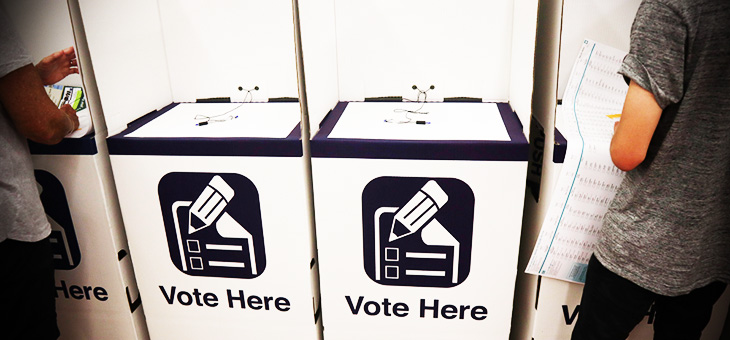While the state of politics in Australia may be considered a shambles by some, our democratic system seems alive and well. Or is it?
Early polling began this week, with over 350,000 Australians already voting for the 2019 Federal Election, according to the Australian Electoral Commission.
Compulsory voting is the cornerstone of Australian democracy. Early voting takes the pressure off a notion to make the polls in a single day, but is it degrading the democratic process?
Critics of pre-polling say that the drawn-out process may be ruining the traditional election campaign.
“Early voting is not a level playing field. Recruiting and organising volunteers for three weeks is more of a challenge for smaller parties and independents than for the major parties. Larger parties with the luxury of enthusiastic volunteers can use early voting as a means of keeping them engaged for longer,” wrote Stephen Mills and Martin Drum for The Conversation.
“Our research also revealed other important campaign changes. Early voting means early policy announcements,” they added.
“Fine. But parties still hold back on providing the nitty-gritty of costings until late in the campaign. This may amount to releasing unpopular revenue measures in the final days of campaigning, and then claiming a mandate for them if they win. So early voters almost certainly cast their vote with incomplete knowledge of what the parties and candidates are offering.”
While compulsory voting prevents Australia from going down the unsavoury path of US politics (just think who would have been past presidents if the US had compulsory voting, and how different the world today might be), is convenience killing the efficacy of the election process?
“There’s an argument that because we have compulsory voting we should make it as easy as possible,” writes Caitlin Fitzsimmons for The Sydney Morning Herald.
“I don’t buy that given most Australians support compulsory voting and don’t regard it as a burden. We should make voting easy but not at any cost.”
In the last federal election, 30 per cent of votes were cast early. Australian National University Professor Ian McAllister that number could be as high as 50 per cent by the early 2020s.
There’s an argument that early voting enables Australians to make uninformed decisions, relying on loyalty to a party rather than casting votes for the best party to run the country.
“It’s a terrible trend,” writes Ms Fitzsimmons. “Our entire system of representative democracy with periodic elections depends on citizens making a collective decision at the same time with the same information. This is seriously undermined by convenience voting over an extended period of time. If a week is a long time in politics, three weeks is practically an epoch.”
But if it were a choice between early voting and non-compulsory voting, Australians may eschew the polls for want of better candidates.
Trust in politics is at an all-time low. According to the 2018 Edelman Trust Barometer, democracies around the globe are distrusted by 80 per cent of global citizens.
In Australia, democratic satisfaction has decreased steadily across each of the last four governments from 86 per cent in 2007 (John Howard), to 72 per cent in 2010 (Kevin Rudd), 72 per cent in 2013 (Tony Abbott) and 41 per cent in July 2018 (Malcolm Turnbull). It is estimated that by 2025, fewer than 10 per cent of Australians will trust government institutions and politicians.
So is being forced to choose the best of a bad lot a pathway to effective government? Or is compulsory voting and pre-polling actually saving our system? If you were given the choice to vote, would you still do it?
Why don’t you tell us what you think in today’s Friday Flash Poll?
The quiz has closed. To read the results and member reaction, click here.
And, of course, we welcome your opinion in our comments section below.

